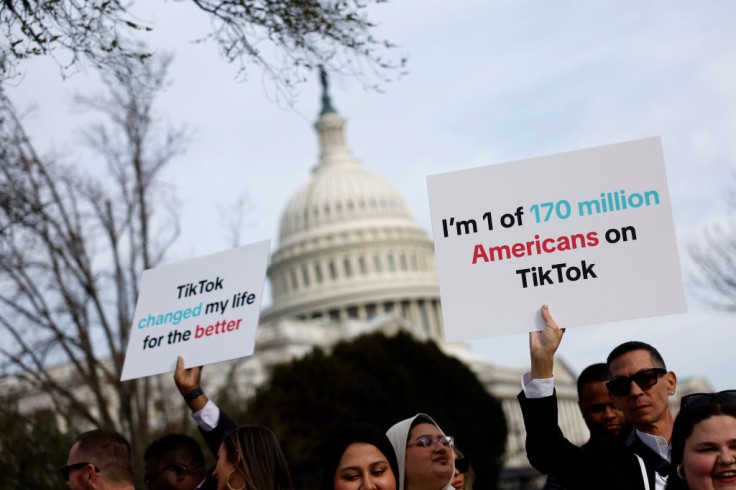
TikTok and its parent company, ByteDance, filed a lawsuit in a federal court on Tuesday, alleging that the United States is violating the first amendment after passing the Protecting Americans From Foreign Adversary Controlled Applications Act, which is centered around the video sharing app.
In April, both sides of the political aisle united in favor of a bill that bundled foreign aid with the potential banning of TikTok. TikTok was given nine months to fully divest from its parent company or face being banned from app marketplaces in the United States. The potential ban comes amid concerns that the app is providing the Chinese Communist Party with American data and obscuring content at the CCP's will.
After the bill passed, seemingly damning the app, TikTok CEO Shou Zi Chew told users that TikTok isn't "going anywhere."
"The facts and the Constitution are on our side," said Chew, divulging that TikTok would move to suit as quickly as possible.
Now, Chew and TikTok are following through on their promise of legal action.
TikTok's attorneys allege that Congress is "silencing" the more than 170 million Americans who use the platform. The lawyers remarked that this is the first time in history that Congress "has enacted a law that subjects a single, named speech platform to a permanent, nationwide ban."
They further warned that if Congress is able to shut down TikTok, "it can circumvent the First Amendment by invoking national security," and thus demand that any individual publisher sell their publication or website "to avoid being shut down." The attorneys fear that the Act will open the doors for major civilian censorship.
The suit states that the Act was passed based on "speculative and analytically flawed concerns about data security and content manipulation," which could be handled in a smaller effort than a complete ban of the application.
TikTok alleges that it spent billions of dollars trying to appease Congress and mitigate security concerns. The media giant claims that it had reached agreements with other U.S. government entities, but that Congress bypassed these agreements in passing the Act.
TikTok's lawyers also argue that it is not "commercially, not technologically, not legally" possible for ByteDance to sell the company within the allotted time period. TikTok has until January 19, 2025 to find a new owner or it will be banned in the United States.
Despite an effort from Steven Mnuchin, former U.S. Treasury Secretary, to purchase the app -- without its algorithm. ByteDance has not put the app up for sale. Furthermore, the algorithm, which is owned by ByteDance and not TikTok, cannot simply be separated from the app.
TikTok's lawyers argue that it is the app's unique algorithm that creates an experience that "cannot be replicated on any other platform today."
In 2020, President Donald Trump also tried to ban the app, but a federal judge blocked the attempt.
In other TikTok legal news, the app and Universal Music Group have settled their months-long dispute, which led to the latter removing its artists' catalogs from the social media platform. TikTok and UMG reached a new licensing agreement, which is set to better benefit UMG's artists and publishers.
© 2026 MusicTimes.com All rights reserved. Do not reproduce without permission.







